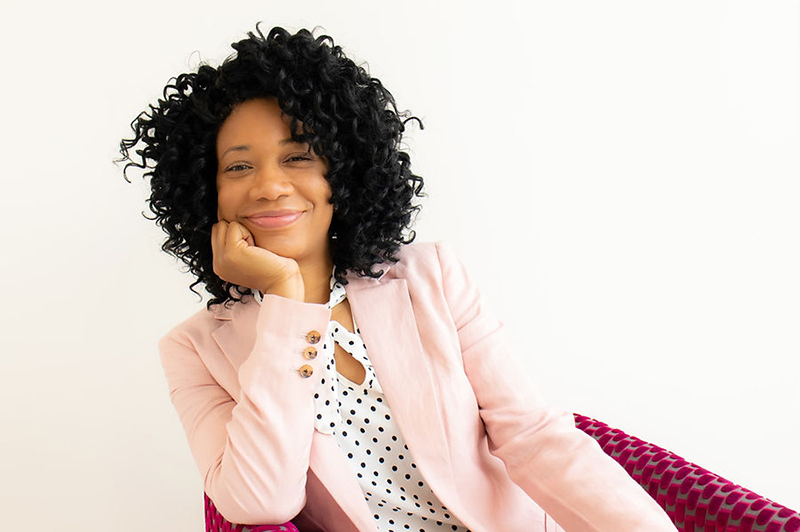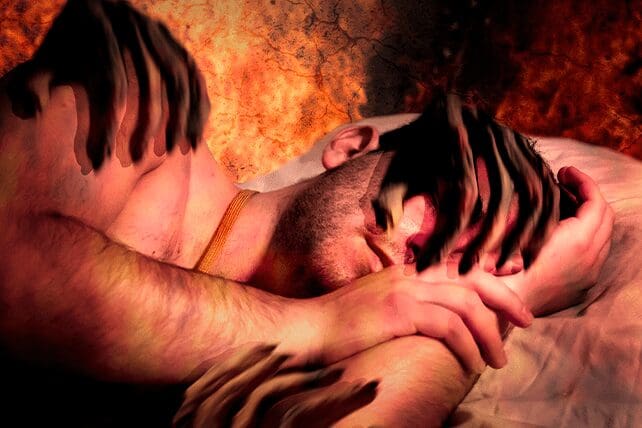(RNS) — When global shutdowns rippled across the globe in March 2020, Stacie Grahn thought it was the literal end of the world.
“I thought, this is it. We’re all in our homes — is this when we’re all going to disappear?” Grahn told Religion News Service in a phone call from British Columbia, Canada. “With the vaccine, I thought, is this how they’re going to separate us? Is this going to be the mark of the beast we have to take?”
For those like Grahn who are taught the rapture can happen at any second, the End Times are more than fodder for apocalyptic fiction. Fear-saturated stories about the saved being transported to heaven while the world faces havoc and hellfire can generate lifelong panic, paranoia and anxiety, reorienting people’s lives around what’s to come instead of what is. These religious beliefs have societal implications, too. Why care about the refugee crisis or climate change if the world is doomed?

Stacie Grahn. Courtesy photo
The rapture is a relatively recent early 19th-century phenomenon most often embraced in evangelical or fundamentalist circles. In the late 20th century, it was reinforced through popular media, including Hal Lindsay’s 1970 bestseller “The Late Great Planet Earth,” which interpreted world events as signs of the end times, as well as the 1972 thriller “A Thief in the Night” and, in the 1990s, Tim LaHaye and Jerry B. Jenkins’ wildly popular “Left Behind” series. But, as Grahn could tell you, these ideas aren’t relics of the past.
Grahn’s grandmother first introduced her to the rapture at a young age via videos of end-times ministries and preachers like JD Farag. Anything her grandmother planned was with an asterisk. “We can plan that, but the Lord could be coming back,” Grahn recalled her grandmother saying.
Unlike Grahn, Nikki G, 46, came to view the rapture as gospel later in life. In 2010, she uprooted her life to join the International House of Prayer in Kansas City, Missouri. Nikki, who as a survivor of several high-control religious groups asked to go by her first name due to safety concerns, was attracted by the fervency of the group, which has been hosting 24/7 worship and prayer since 1999 and has a distinct End Times flavor.
“We believe that the Church will go through the Great Tribulation with great power and victory and will only be raptured at the end of the Great Tribulation. No one can know with certainty the timing of the Lord’s return,” the organization’s website says.
As a result of the apocalyptic messaging she heard in these groups, Nikki said she rejected materialism, began canning food and strategized survival tactics. But prepping to survive until the rapture took a toll on Nikki.
“It’s very dehumanizing,” Nikki told RNS. “You’re not present, you’re always in the future. You are disassociated from your body, your nervous system and yourself, and ultimately you become the theology. … I was no longer Nikki, when I was in all of that.”
She experienced nightmares, flashbacks and insomnia years after leaving.

Nikki G. Courtesy photo
Therapist Mark Gregory Karris, author of “The Diabolical Trinity: Healing Religious Trauma from a Wrathful God, Tormenting Hell, and a Sinful Self” (2023), said, while there’s little research on rapture-related trauma, anecdotal evidence suggests people can experience anxiety, fear and disrupted life plans because of such teachings, especially those that emphasize the immediacy of the rapture, the torment of those left behind and the need to be good enough to win God’s approval. Some who ingest these beliefs see future plans as futile, even faithless.
That was the case for Diana Frazier, 39, who grew up in a charismatic Assemblies of God church in Poulsbo, Washington.
“I remember sobbing multiple times as a little kid, thinking I will never get to get married, I will never get to have children. There’s no point in having any kind of dream for my future because I’ll be in heaven. And then I would have guilt and shame, even as a little kid, because I’d know I was supposed to be happy about that.”
As a teen, Frazier participated in a youth group-sponsored hell house, a riff on haunted houses that portrayed “sinful” scenarios — like drunken car crashes and an abortion clinic — that led to hell. Afterward, participants were invited to say the “sinner’s prayer.” Inundated with images of the terror she’d face if she wasn’t chosen by God, Frazier was constantly vigilant, ready to respond to disaster. But there was a cost.
“Humans aren’t meant to survive like that. Walking around with a fire extinguisher going all the time when there’s no fire is exhausting.”
Frazier paused her education after receiving her associate degree, in part because she thought Jesus would arrive at any time. Even when she had doubts, the risk of leaving her church community felt too high — she’d be forsaking her friends, her family and, later, as a parent, potentially jeopardizing her kids’ salvation.

